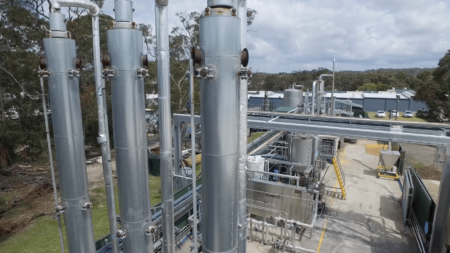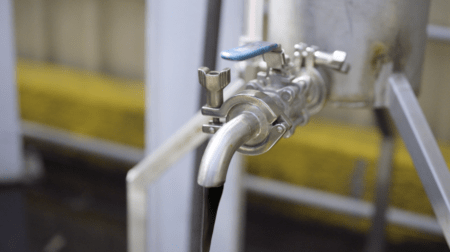An Australian company behind a machine which it says can convert end-of-life and industrial plastics back into oil say it has the upper hand over similar schemes as it is not reliant on public funds.

The process involves breaking down a wide range of plastics to their original component molecules and then rearranging them
ReNew ELP say its patented machine – the Catalytic Hydrothermal Reactor (Cat-HTR) – uses water at high pressure to chemically recycle a wide range of feedstocks back into a biocrude oil, which can be sold on as a crude oil replacement.
The company say that the machine uses water as the “agent of change”, so the plant can operate at far lower temperatures making it more efficient than pyrolysis or gasification.
The process involves breaking down a wide range of plastics to their original component molecules and then rearranging these molecules to turn the waste plastic into readily usable chemicals and recycled oils.
‘Extensively tested’
ReNew’s Cat-HTR technology was developed by Australian company Licella over the past 10 years and has already been “extensively tested” at a pilot plant in Australia, the company confirmed. Licella say it will be rolled out commercially “soon”.
Licella said in September 2017 that it would use an Australian government grant to assist in “constructing an end to end Cat-HTR demonstration plant for waste plastic at our existing pilot plant, located at Somersby, on the NSW Central Coast. By demonstrating the Cat-HTR’s commercial feasibility for waste plastic this plant paves the way for the construction of Australia’s first commercial waste plastic to fuels/chemicals plant, which will most likely be located at an existing waste processing facility.”
UK
The Australian company say that it is an investment-led facility n the UK and is therefore not reliant on public funds to succeed, although they are in the running for some grants in order to “help with expansion”.
According to ReNew, the machine received over $75 million in Australia in funding.
The company has set an aim for the machine to be operational in the UK by the end of 2019, at a site at the Wilton Centre, Teeside.
The plant will initially recycle 20,000 tonnes of end-of-life plastic per annum but ReNew has planning consent for a further three units, with a potential total processing capacity of 80,000 tonnes per annum.
Feedstock
In terms of feedstock, the company say the machine can use a range of plastics including films, PTT and rigid plastic. One of its major advantages, the company added, is that there is no need to dry the feedstock prior to treatment, “which significantly reduces operating costs versus alternative technologies”.
Speaking to letsrecycle.com, Andrew Buchanan, business development manager at ReNew, explained the next steps for the company.

The machine uses water at high pressure to chemically recycle a wide range of feedstocks back into a biocrude oil
“We are in advanced talks with a number of waste management companies for difficult feedstock , but we are really focusing on plastics that can’t be recycled,” he explained.
Mr Buchanan added: “This includes mechanical props that are not good enough and crisp packets. We can also take some lower quality film, although it cannot be 100% film in the machine as this causes problems, but it can be blended with other types.”
He added that although the company aims to work alongside, and not against, similar projects, ReNew poses no risk to public money as it is funded entirely privately.
Recycling technologies
ReNew’s move into the UK this month comes soon after Zero Waste Scotland announced further funding of more than £3 million for ‘Project Beacon’, which will see an “advanced” plastics reprocessing facility implemented in Perthshire.
Zero Waste Scotland said that once operational later this year, the facility will enable householders to recycle all plastics at the kerbside, including crisp packets, black trays and broken plastic toys.
The funding for the RT7000 machine is made up of £1.7 million from Zero Waste Scotland, matched by the same amount from the private sector.
Recycling Technologies of Swindon is the company behind the RT7000 machine, which the company claims can turn all post-consumer plastics into Plaxx, a type of oil which the company claims can be worth up to £300 a tonne.
The post Australian ‘plastics to oil’ machine set for UK appeared first on letsrecycle.com.
Source: letsrecycle.com Plastic


